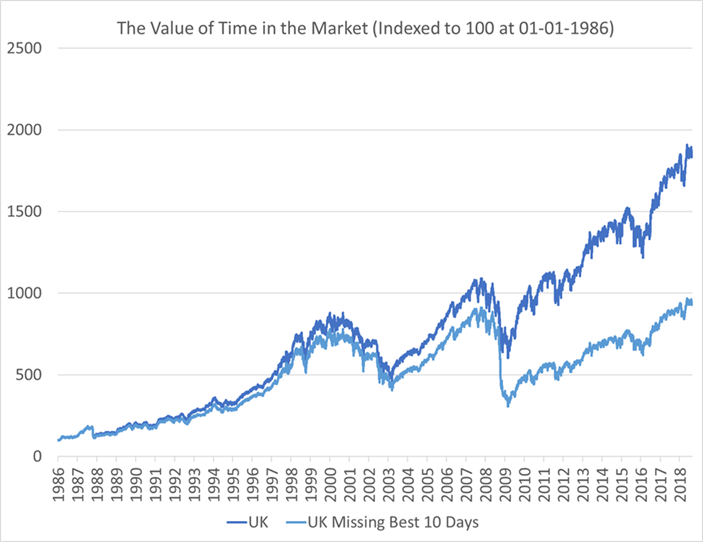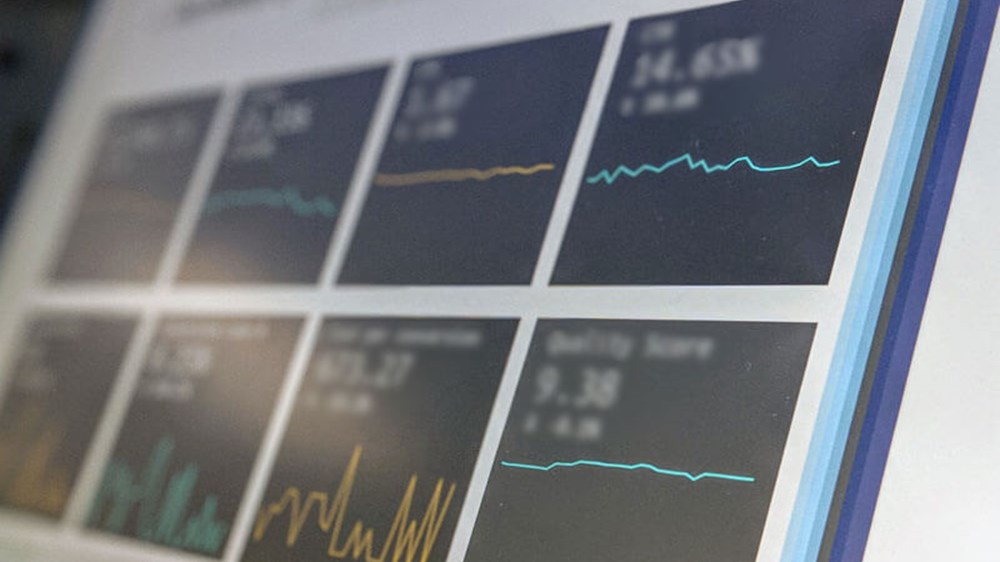All financial markets have good days and bad days. The key to successful investing is therefore simply to be invested on all the good days and not invested on all the bad days. Sounds easy, right?
Unfortunately, markets are largely unpredictable and often illogical – driven by a mammoth number of variables, ever-changing global events and, by emotional and sometimes irrational human beings.
Market timing is therefore, to put it mildly, rather difficult. The likelihood of correctly predicting exactly when to be invested to maximise profit on good days and minimise losses on bad days, are… well, miniscule.
An alternative to reacting to every single market sneeze is to do nothing and think long term. To us emotionally-minded humans it can sound like a risky and counterintuitive approach. When you see your investments losing money the urge to jump out and sell to limit your losses can be overwhelming. So how can doing nothing be a good idea?
Doing something could be more costly
Academic research tells us that the pain you feel when making a financial loss is twice as strong as the joy of making a gain of equal value, which explains the temptation people have to sell their investments in the hope of avoiding further losses when markets start to fall.
This reaction has one major drawback, however. Selling your investments when they’re down makes your losses real. If you remain invested, your ‘loss’ is simply a minus figure on a screen, which could change if markets start to move in the opposite direction again. While you still hold the investment, you still have a chance of getting your money back or even making a profit on your investment in the future.
Reacting to a drop means you might miss out on the ‘bounce’
Without a crystal ball, it’s difficult to know for certain when markets are going to recover. If you’re uninvested and markets rebound overnight, you could miss out on potentially some of the best days to be invested all year.
You can actually measure the effect of doing nothing versus doing something, by looking at how different your returns would have been in the past. The graph below shows the effect on your overall returns of missing the best 10 days in the FTSE 100 since 1986 versus staying invested.

Bloomberg
The bottom line
Evidence suggests that ‘time in the market’ rather than ‘timing the market’ is the more suitable approach for the vast majority of non-professional retail investors. Historic performance of a market such as the FTSE-100 shows that in the long run there are typically more positive upward movements in the market than negative downward movements by a factor of 3 – 1. So, ignore the daily ups and downs, stay invested and think long term.
Figures in this blog are based on past performance and past performance is not a reliable indicator of future results.
Please remember the value of your investments can go down as well as up, and you could get back less than invested.



